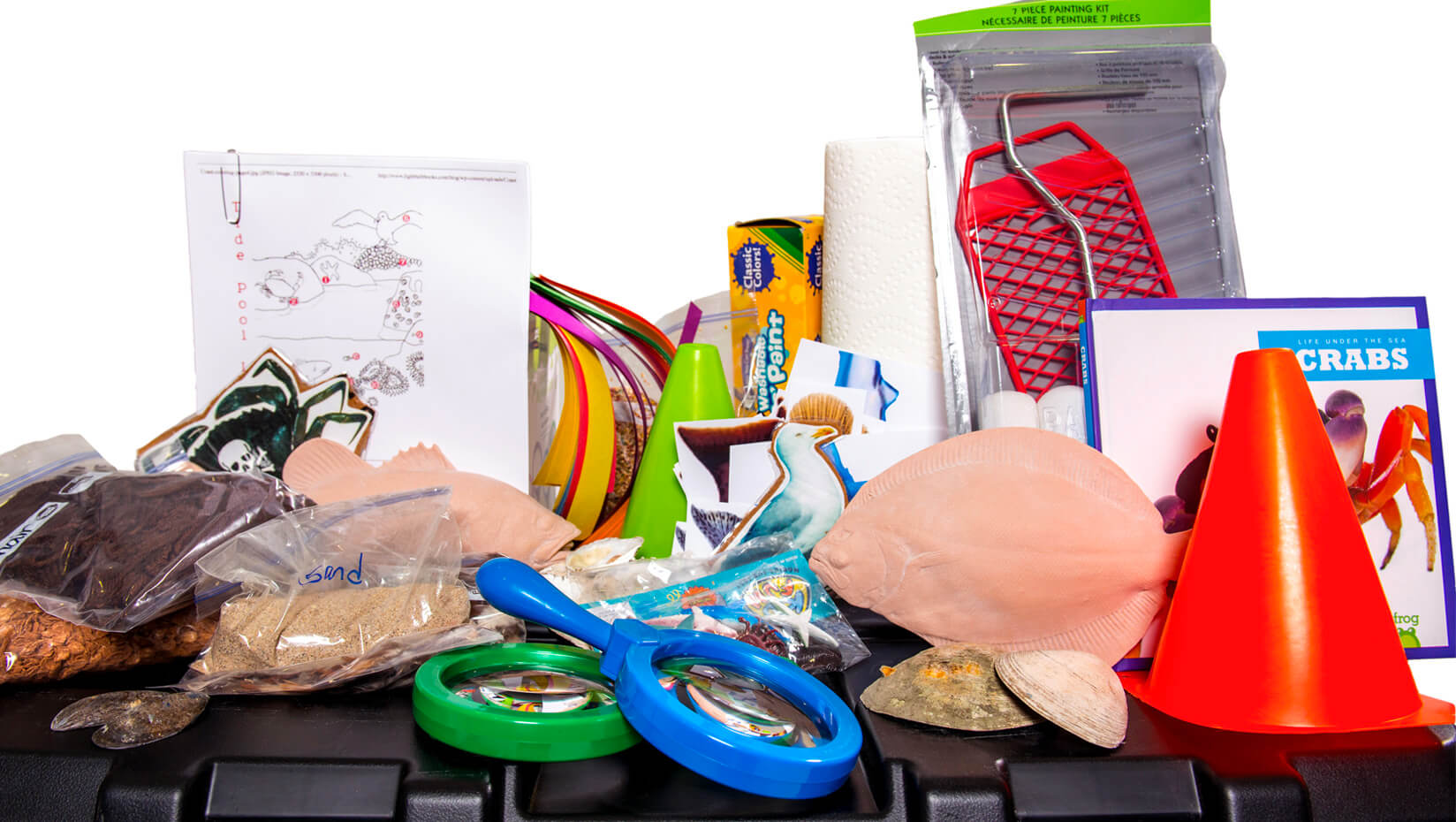
Youth invited to explore ocean with EPSCoR, UMaine Extension toolkit
Got twine? How about clothespins? Glue sticks? Coffee filters? Cotton balls?
University of Maine Cooperative Extension 4-H and Maine EPSCoR at the University of Maine do. They’ve also got dried seaweed, globes, kickballs and fish puzzles.
They’ve packed these and other items in toolkits — called Exploring Marine Science and Aquaculture (Grades K–2) — that provide youth with a unique learning experience.
And they recently received word the Exploring Marine Science and Aquaculture curriculum is the first in the state to earn national 4-H certification.
A number of students, faculty and staff with EPSCoR (Established Program to Stimulate Competitive Research) and UMaine Extension have had a hand in creating hands-on activities to teach children about the ocean.
The toolkits are available statewide for K–2 classes, 4-H and Scout groups, and after-school and summer program attendees. Educators and group leaders nationwide can access the engaging lessons online.
“Outreach is what we do,” says Sarah Sparks, a 4-H science professional in Androscoggin and Sagadahoc counties. “It’s our mission.”
A goal of the collaborative project is for children to develop an interest in science — including UMaine marine research — through interesting experiential activities.
The dozen dynamic lessons, all of which contain multiple activities, dive into a number of ocean-related topics, including aquaculture.
Children play crab soccer to experience how the 10-legged crustaceans move. They sing a song about tide pools to learn about the rocky crevasses filled with seawater.
Teacher Kimberly Caron developed lessons for the K–2 kit when she was an undergraduate education major at UMaine. Caron and other UMaine education majors accompanied researchers in the field to experience the science firsthand before creating the curriculum.
Activities are aligned with Next Generation Science Standards — key ideas and practices students should understand by the time they graduate high school.
The experiential activities were tested multiple times in a variety of settings before being submitted for, and earning, the national 4-H curriculum approval.
During one project’s pilot stage, Sparks enjoyed watching children design a fish with a mouth, fins, gills and tail, then make a connection with personal experiences they’ve had fishing.
Laura Wilson, also a 4-H science professional with UMaine Extension, observed UMaine students piloting lessons with youth at University Park in Old Town.
“There was a buzz in the air,” Wilson says. “It was exciting to see students lead the activities and see smiles on the children’s faces.”
The project is funded by a National Science Foundation grant to EPSCoR.
EPSCoR and UMaine Extension also are developing additional science toolkits for youth in grades 3–5, 6–8 and 9–12.
Carla Scocchi developed the Sea Vegetable Toolkit — which has been submitted for national 4-H certification review — for children in grades 3–5. Scocchi, formerly a Maine Center for RiSE (Research in STEM Education) Master of Science in Teaching (MST) student, now is a 4-H professional in Hancock County.
Approximately 11,000 Maine youth were involved in pilot testing the Sea Vegetable Toolkit lessons and activities, says Laurie Bragg, project administrator and program and outreach manager at EPSCoR.
Hannah Chisholm, a RiSE center MST student, is developing the curriculum for children in grades 6–8, which is early in the pilot phase. And Lauren Swalec, also a RiSE center MST student, is developing the high school curriculum, which is entering the design phase. Undergraduates Savannah Swain and Abigail Elkins also have contributed.
Bragg says the activities provide youth with opportunities to learn about UMaine-related marine research, in developmentally appropriate stages, from kindergarten through high school.
These days, there’s been a steady hum in Bragg’s office as 3-D printers manufacture game pieces — including 100 seals (each seal takes 11 minutes to print) and 2,800 boats for an aquaculture-themed board game.
Players assume the role of entrepreneurs, challenged with leasing sea plots, managing fishing vessels and harvesting mussels, salmon and kelp.
Bragg says the game, and other ocean-related K–12 activities, engage youth in science that’s connected to them, to the state and to Maine’s economy.
Wilson says EPSCoR and UMaine Extension have expertise and knowledge that can make a positive difference for Maine people and communities. “We have a wealth of information and a lot of resources,” she says.
K–2 educators and club leaders are encouraged to contact Sparks at 207.353.5550 or 4-HScience@maine.edu to reserve a toolkit.
Contact: Beth Staples, 207.581.3777
